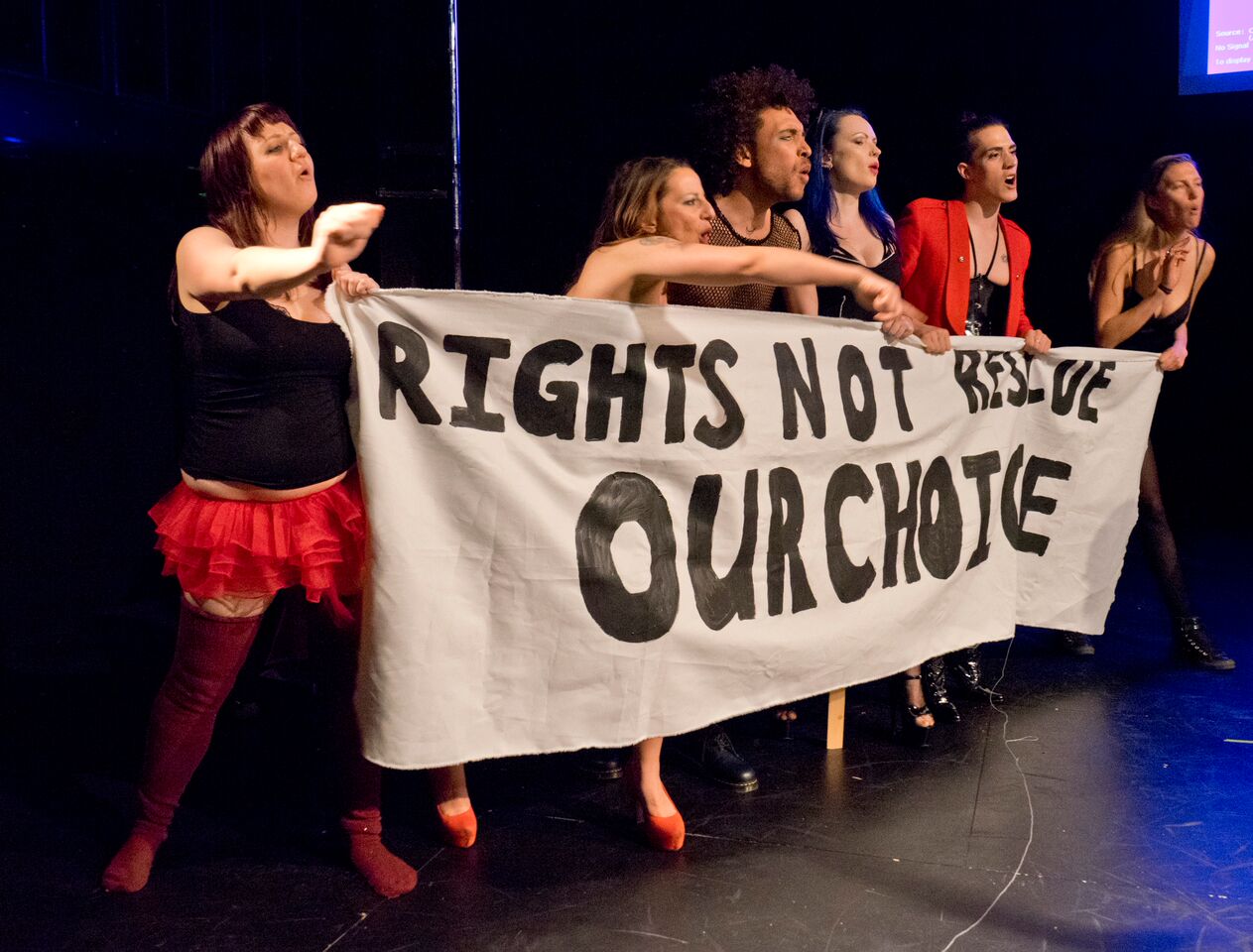SNP back prostitution law changes condemned by sex workers
The Scottish Nationalists' conference in Aberdeen backs a motion condemning the sale of sex as 'a form of violence against women'

The Scottish National Party has backed changes to prostitution laws to criminalise those paying for sex, but not those who sell it.
Delegates at the party’s conference in Aberdeen voted in favour of a motion proposing a “Scottish model” to handle prostitution, similar to the "Nordic model" used in Scandinavian countries.
The resolution, proposed by MSP Ash Denham, stated that “commercial sexual exploitation, including prostitution and human trafficking, is a form of violence against women”.
Currently, selling sex in Scotland is not illegal, but a number of related activities such as “brothel keeping” and “controlling prostitution for gain” are.
For example, while indoor sex work is legal in Scotland, more than one person working together is considered an illegal brothel.
The SNP’s decision drew criticism from some sex worker organisations, who said that full decriminalisation was the only way to the ensure the safety of sex workers.
The Nordic model is seen by its advocates as a progressive way to deal with trafficking and violence against women.
The motion noted the policy had been “successfully” adopted in Norway, Finland Iceland, Canada, Northern Ireland and France.
However, organisations which are led by sex workers consistently argue that this system actually makes prostitutes' working conditions become considerably more dangerous, because they are often prevented from working in groups or cohabiting for safety.
Ms Denham said the SNP was "recognised throughout the world for its progressive leadership on LGBTI rights, women’s rights, and fighting against child exploitation and domestic abuse".
"The SNP furthered that progressive leadership by approving my resolution which charters a Scottish model on prostitution that protects victims of prostitution and punishes those that would exploit them," she added.
"We have now taken a big step in tackling gender-based violence. Countless victims of prostitution state that violence is an inevitable part of the industry. This is backed up by studies here in the UK, as well as fully decriminalised systems like New Zealand, where prostituted women have said full decriminalisation will do little to address violence. Whether it is ‘above ground’ or ‘underground’ the culture of prostitution is the same: abusive and degrading. I applaud SNP delegates for recognising this.
“Furthermore, many other studies show a clear link between prostitution and human trafficking. The two systems fuel one another."
She argued that the adoption of the Nordic model by neighbouring countries "risks seeing a displacement effect of traffickers setting up shop in Scotland".
"By approving a Scottish model on prostitution, SNP delegates have said ‘no’ to increased flows of trafficking in Scotland. The Scottish model also goes further than the Nordic model by committing to legislation that includes assistance and support for those wishing to exit prostitution," Ms Denham added.
Fiona Broadfoot, a former sex worker standing to be an SNP councillor, spoke in favour of the motion, recounting how, as a 17-year-old girl, she was brutally raped by a client, but returned to work on a street corner “within the hour".
International Day to End Violence Against Sex Workers - in pictures
Show all 11Christina Cannon, who is standing to be an SNP councillor in Glasgow, argued against the adoption of the Nordic model.
“Sex workers are some of the most marginalised people in society today. Shouldn’t we help them instead of further marginalising them?”
The motion, she argued, did not protect their rights, but would “push sex work into the shadows”.
Nadine Stott, chair of Scot-Pep, an organisation which advocates for sex workers rights, strongly condemned the adoption of the policy.
“The criminalisation of clients has been shown time and time again to make sex workers more vulnerable to violence, as interactions with clients have to become more rushed and clandestine – a gift to people with violent intentions.
"Indeed, we already have evidence of this happening in Scotland – in 2008, the prostitution in public places act criminalised the clients of street-based sex workers, and SCOT-PEP saw a 50 per cent increase in violence against street-based sex workers within just the first six months of the law.
"In particular, street-based sex workers need to not be fearing arrest for themselves or their clients, as that pushes these workers into isolated, hidden places on the edges of cities as they avoid the police.”
Ms Stott said many sex workers in Scot-Pep’s network were SNP voters, and were upset and wondering why “a party that they've supported in the past would abandon them in this way".
She said she hoped they would keep engaging with the SNP in the future, and that many in the party were supportive of decriminalisation.
Scot-Pep hosted an alternative debate on sex work at an SNP fringe event.
Robert Sommyne, who attended the event, said a sex worker was “rounded on” during the discussion by Nordic model activists, and that “it wasn’t possible to have agency as a sex worker, because the choice is based on pressures".
Ms Stott told The Independent Scot-Pep volunteers were “really shaken by the aggression and hostility they were subject to".
The English Collective of Prostitutes and the Sex Worker Open University, both organisations which advocate for sex workers' rights and back full decriminalisation, have also condemned the SNP's support of Ms Denham's motion.
John Mason, who was a signatory of the motion, has previously argued for a shorter time limit for abortions in Scotland, and tabled a motion in support stating that no person or organisation should be forced “approve of same-sex marriage".
Subscribe to Independent Premium to bookmark this article
Want to bookmark your favourite articles and stories to read or reference later? Start your Independent Premium subscription today.

Join our commenting forum
Join thought-provoking conversations, follow other Independent readers and see their replies